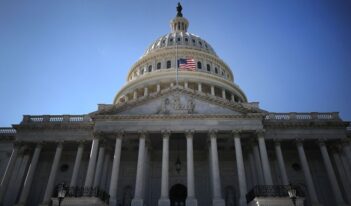
Regulatory news in review
- Following the nuclear crisis in Japan, the Tennessee Valley Authority (TVA) announced that, even though its six nuclear power plants are not in earthquake-prone areas, it may invest significantly in making them less vulnerable to “natural and man-made disasters.” For example, the TVA may minimize its use of storage pools for spent fuel, install more backup generators, strengthen communication abilities, and make electrical switchboards less vulnerable to earthquakes. See related The Regulatory Review essay.
- A new academic study has claimed that the process of creating shale gas, an increasingly popular and much-lauded kind of natural gas, creates more potent greenhouse gas emissions than does the mining and burning of coal.
- The Environmental Protection Agency (EPA) issued a final rule exempting milk products from an oil spill prevention rule. The rule originally included milk because the Clean Water Act defines it as oil. The EPA explained that this exemption is “part of the Obama Administration’s efforts to make regulations more effective and eliminate unnecessary burdens.” See related The Regulatory Review essay.
- Several airlines and their industry group sued the European Union (EU) in the European Court of Justice to prevent it from applying its Emissions Trading System (ETS) to foreign airlines using European airports. The plaintiffs claim that the regulation violates international law, while the EU argues that international participation is crucial for making ETS effective. See related The Regulatory Review essay.
- Several financial regulatory agencies released a proposed rule, under the Dodd-Frank Act, that would require many financial institutions to disclose the structure of their incentive-based compensation programs. The agencies seek to discourage financial incentives to engage in the high-risk behavior that has been associated with the financial crisis. See related The Regulatory Review essay.
- The House of Representatives, in a 235-193 vote largely along party lines, passed a proposed 2012 budget introduced by Representative Paul Ryan (R-WI). The budget would reduce the federal deficit by raising the age of eligibility for Medicare, converting Medicare to a voucher system, reducing Medicaid funding, retracting measures in the 2010 Patient Protection and Affordable Care Act, and lowering taxes for corporations.
- The Senate Special Committee on Aging held a hearing to discuss the medical device review process of the Food and Drug Administration (FDA). Members of the Government Accountability Office discussed the findings of its ongoing investigation of the FDA’s approval of some medical devices allegedly without adequate testing. Representatives of the American medical device companies testified that prolonging the FDA approval process could harm their competitiveness.
- The FDA released a proposed rule to subject tobacco to its package-labeling, exporting, and other product regulations. The FDA has authority to regulate tobacco products under the Family Smoking Prevention and Tobacco Control Act of 2009.
- State religious authorities in Tajikistan, a Muslim country, have ruled that, under Islamic law, a husband may not divorce his wife through text messages. Tajik marital regulations also include limits on wedding celebrations, including the number of guests, meal size, and ceremony length.
This Regulatory Recap is the final one of the spring semester and of graduating Executive Editor Steven Gillard. In May, Mima Mohammed will begin authoring this weekly essay.



